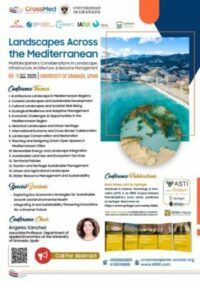ISSN (online): 2079-4991
Call of the Journal:
- Carbon Nanoparticles for Strain Sensing and Damage Monitoring
- Computational Modeling and Simulation for Nanomaterials, Nanotechnology, and Nanoscience
- Conductive Nanocomposites and Their 3D Printing
- II-VI Semiconductor Nanocrystals and Hybrid Polymer-Nanocrystal Systems
- Nanomaterials Based on IV-Group Semiconductors
- Nanostructured Catalysts for Sustainable Applications
Oct
2020
Nov
2020
Different nano-structured solid materials with well-defined micro-, meso-, and hierarchical porosity and controlled catalytic properties (acid/base, redox) are capable of catalyzing a wide range of chemical reactions (e.g., oxidations, reductions, acid/base processes, etherifications, condensations, etc.) in the liquid and gas phases, interesting for the industrial production of chemicals, fuels, energy and energy vectors. The presence of isolated metallic species, homogeneously distributed in the form of nanoparticles on specific acid/base supports or adequately incorporated in the inorganic framework of well-structured materials, provides multi-functional capacities to afford catalytic transformations and multi-step reactions in “one-pot” or “cascade-type” processes, thus reducing reaction steps and operations costs and making processes more efficient and sustainable. This Special Issue welcomes contributions devoted to the design, characterization, and application of novel nano-structured catalysts for sustainable chemical processes, mainly those focussed on the production of renewable energy and fuels or those related to the transformation of renewable raw materials, such as biomass and its derivatives into valuable products.
SwitzerlandNanostructured Catalysts for Sustainable Applications
Different nano-structured solid materials with well-defined micro-, meso-, and hierarchical porosity and controlled catalytic properties (acid/base, redox) are capable of catalyzing a wide range of chemical reactions (e.g., oxidations, reductions, acid/base processes, etherifications, condensations, etc.) in the liquid and gas phases, interesting for the industrial production of chemicals, fuels, energy and energy vectors. The presence of isolated metallic species, homogeneously distributed in the form of nanoparticles on specific acid/base supports or adequately incorporated in the inorganic framework of well-structured materials, provides multi-functional capacities to afford catalytic transformations and multi-step reactions in “one-pot” or “cascade-type” processes, thus reducing reaction steps and operations costs and making processes more efficient and sustainable. This Special Issue welcomes contributions devoted to the design, characterization, and application of novel nano-structured catalysts for sustainable chemical processes, mainly those focussed on the production of renewable energy and fuels or those related to the transformation of renewable raw materials, such as biomass and its derivatives into valuable products.
Chemical Abstracts (ACS), Current Contents – Physical, Chemical & Earth Sciences (Clarivate Analytics), DOAJ, Genamics JournalSeek, Inspec (IET), Journal Citation Reports / Science Edition (Clarivate Analytics), Julkaisufoorumi Publication Forum (Federation of Finnish Learned Societies), Polymer Library (Smithers Rapra), PubMed (NLM), Science Citation Index Expanded – Web of Science (Clarivate Analytics), Scopus (Elsevier), Web of Science (Clarivate Analytics), Zetoc (British Library), CLOCKSS (Digital Archive), PubMed Central (NLM), Academic OneFile (Gale/Cengage Learning), EBSCOhost (EBSCO Publishing), Engineering Source (EBSCO), Google Scholar, J-Gate (Informatics India), Materials Science & Engineering (ProQuest), METADEX/Metals Abstracts (ProQuest), ProQuest Central (ProQuest), Science In Context (Gale/Cengage Learning), WorldCat (OCLC).
Info at: www.mdpi.com/journal/nanomaterials/apc
Guest Editors
Dr. Marcelo E. Domine
Prof. Alberto Marinas










